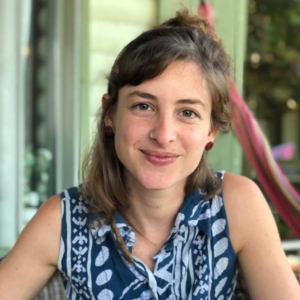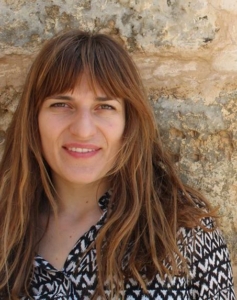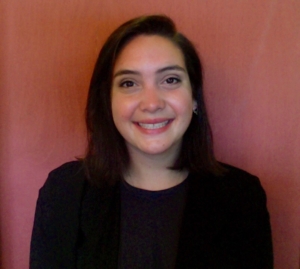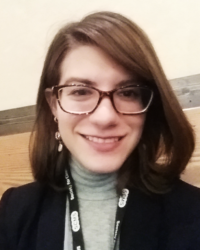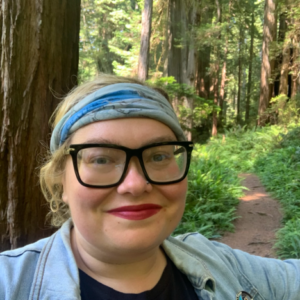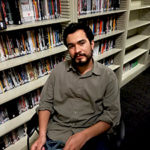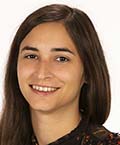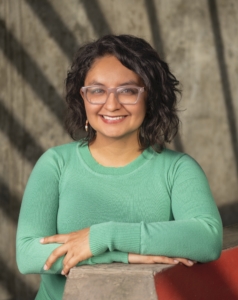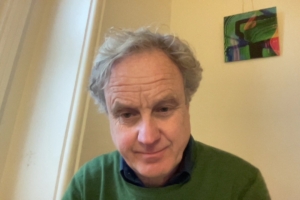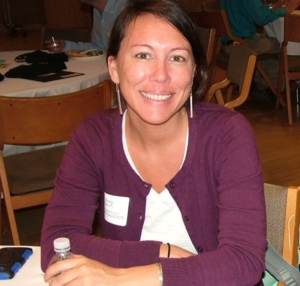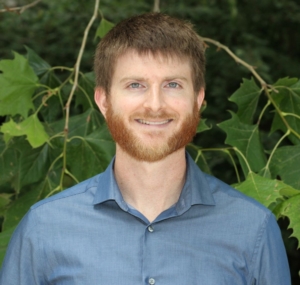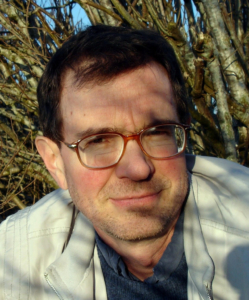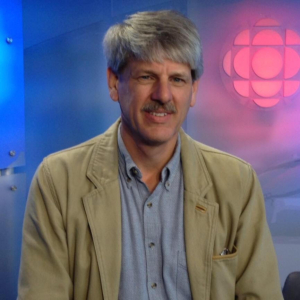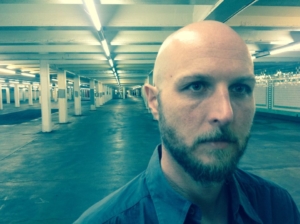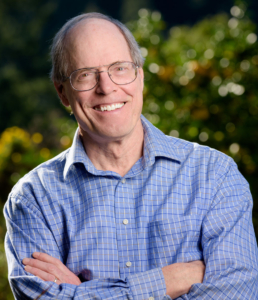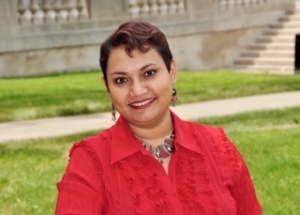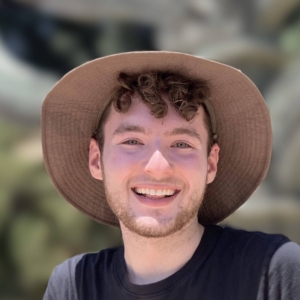Abstracts & Bios
Click on the titles below to link to the panel/presentation, or here to return to main conference page.
Utopian Practice: Collective Agroecological City Councilor Mandate / Florianópolis, Brazil
Marcos José Abreu
Since 2017, we have assumed the mandate of councilor at the Municipality of Florianópolis, looking for a more ecological and socially just city. Our legislative actions are aimed at the construction of a society where all beings, human and not, are respected and valued human beings, so that we all live with dignity and harmony. Our work addresses the main challenges that Brazilian cities face, seeking to make them inclusive, safe, resilient and sustainable. Occupying this institutional space has allowed us to bring real and concrete utopias to the local parliament. In constant dialogue with a broad social fabric, we elaborate a series of legislations: the Municipal Agroecology Policy; the Composting Law, which obliges the municipality to compost urban organic solid waste; the law, unprecedented in Brazil, which makes the island of Santa Catarina a Pesticide-Free Zone; the inclusion in the Municipal Organic Law of an article that recognizes nature as a subject of rights; the law that protects native bees, which have no sting, and which are fundamental to the pollination of our city’s biodiversity; in addition to other laws and amendments to municipal laws on solidarity economy, food security, immigrant population, etc. Currently, there is a policy for the protection of the indigenous population, and actions on green infrastructure, support for bicycle paths, nature-based drainage systems, rain gardens for urban areas and ecological sanitation. We hope that our work will inspire others to occupy these institutional spaces and build pillars for a more ecologically and socially just society.
Marcos José Abreu (Marquito) is city councilor in Florianópolis, by the Socialist Party, PSOL (2016-2020, following a 2012-2016 mandate). He was the second most voted in town. He is an Agronomist and Master in Agroecosystems by UFSC – Federal University of Santa Catarina. Marquito is a reference person in composting, urban agriculture, permaculture, food safety, waste management and agroecology in Brazil and worldwide. These are guidelines that he carries with him, with coherence, in his daily practical actions and in his agro-ecological mandate, in the struggle and resistance for guaranteeing social and environmental rights, and building proposals for the implementation and guarantee of public policies. He is part of the Agroecological Transition in City, Countryside and Forests!
Learning on Climate Justice for the Global Commons with Fishing and Tribal Communities from India
We propose a panel that surfaces narratives of climate justice and resilience from fishing and tribal communities in India. Panelists include community representatives, academic researchers, funders, and civil society actors. Themes to be explored include:
- community experiences with the changing climate,
- successes, failures, and learnings relating to climate justice and resilience,
- perspectives on radicalising the climate justice movement,
- connections between the local and the global.
Official national policy in India has largely focused on an internationally-oriented discourse of climate justice that emphasises India’s need for developmental carbon space and its low per capita carbon footprint. Within the country, marginalised indigenous and rural communities face the twin depredations of a neoliberal predatory extractivist state and cataclysmic climate impacts. With over 7500 kilometres of coastline (~50% of India’s land frontier) and ~25% of land area under forest cover, both oceans and forests are critical terrains in terms of climate vulnerability, climate mitigation and adaptation, livelihood and food security, and community resilience. Fishing and forest-dwelling tribal communities here are at the forefront of the climate crisis. What might we learn from their experiences and worldviews?
Expert Panel: Rajni Bakshi [Author, Journalist and Founder of ‘Ahimsa Conversations’], Mayalmit Lepcha [Affected Citizens of Teesta & President of Sikkim Indigenous Lepcha Tribal Association ], Kumaribai Jamkata [member of Mahagramsabha and facilitates women’s collectives in Gadchiroli], Anil Tharayath Varghese [Delhi Forum], Jesu Rethinam [Director, SNEHA & Advisor, National Fishworkers Forum]
Organisers: Namrata Kabra [Initiative for Climate Action], Vedita Agarwal [Initiative for Climate Action], Abhayraj Naik [Initiative for Climate Action]
Utopian Practice: Eco Vista Food Forest / Isla Vista, CA, United States
Tony Barbero, Ash Valenti, and Noa Cykman
A food forest is an edible territory, designed to mimic a natural ecosystem in order to feed and benefit humans as well as other species. The Eco Vista Food Forest is located at Estero Park, Isla Vista, near the campus of the University of California, Santa Barbara. At its tenth month of life, it contains over 50 edible, native, and medicinal plants. Our utopia is that this food forest, in network with infinite others, will populate towns, provide food and guarantee food justice, assemble communities, and contribute to regenerate our ecosystems. Our next plans include furthering social inclusion and access, hosting “community days” to dialogue with local residents (decide what to plant, exchange knowledge, create bonds, host language exchange workshops, etc.), putting on signs about the food forest, about plants, and about best practices, and QR codes that will link to content that we will make available online, bring children, and continue promoting inclusion, education, and sustainability.
Tony Barbero is an agroecologist and community activist originally from San Francisco, California. He graduated in Sociology from UCSB, and has since specialized in drought tolerant regerative agriculture. He hopes to move further into native ecosystem restoration going forward.
Ash Valenti majored in Environmental Sciences at UCSB, and is a core member of the Eco Vista Community.
Noa Cykman is a graduate student in Sociology at the University of California, Santa Barbara (UCSB), with a Fulbright fellowship. She holds an M.A. in Political Sociology and a B.A. in Social Sciences from the Federal University of Santa Catarina (UFSC), Brazil, where she founded and coordinates the Utopia Lab (Laboratório da Utopia–Luta). She is part of the Eco Vista Community and of the EJ/CJ Hub, linked to UCSB. Her work is oriented towards the proposition and experimentation of new socio-ecological practices. She is currently focused on agroecology and urban food forests as ecological utopian experiences oriented by a more-than-human ethics.
Intergenerational Equity and the Global Commons
Rahul Basu
Intergenerational Equity must be foundational for civilization or it will perish. We are a series of nested systems. One hierarchy is individual > family / clan / tribe / corporate entity > nations > civilization > humanity > biosphere. Survival is the ultimate goal of each system. If we ensure that our children inherit at least as much as we did – intergenerational equity – the system is likely to survive. If we consume our inheritance and each generation does the same, civilization will collapse. Growth is another strategy for survival, but growth is the ideology of the cancer cell.
Managing the deep sea minerals in international waters – the common heritage of humankind. Yes, deep sea mining will be a disaster, but legally, it seems difficult to stop. And it will become a precedent for other global commons – Antartica, moon, etc. Extraction is effectively the sale of the mineral inheritance. If extraction does take place, how do we ensure that future generations are not cheated of their inheritance? How do we stop extractors and the ISA from capturing the wealth of humankind? How do we ensure the present generation benefits equally as is their right?
Rahul Basu is the Research Director of Goa Foundation and a member of The Future We Need, a global movement to make intergenerational equity foundational for civilization. He is a member of the Indian Society for Ecological Economics (INSEE) and the European Association of Environmental and Resource Economists (EAERE).
Climate Finance and Capitalist Crisis: Time to Renew Demand for Carbon Debt and Reparations?
Patrick Bond
The climate crisis is amplified by socio-political and economic injustices everywhere but in 2021, perhaps nowhere as acutely as northern Mozambique. There, the Cabo Delgado province is a site for military intervention against Islamic insurgents, by local and regional armies (from the Southern African Development Community and Rwanda), backed by mainly South African mercenaries as well as European and U.S. armies. If successful, the main beneficiary will be Big Oil firms, which seek to extract 165 trillion cubic feet of offshore gas. But this too is a site where the region’s most extreme cyclone barreled down in 2019 (in the wake of severe droughts), as a result of higher temperatures in the Mozambique Channel. On the one hand, the overarching narrative promoted by media and intervention advocates, is that oil companies – Total (France), ExxonMobil (U.S.), ENI (Italy), Galp (Portugal), the China National Petroleum Corporation, Sasol (South Africa) and others – will provide Foreign Direct Investment, infrastructure, gas revenues, jobs and GDP growth to develop Mozambique’s impoverished northern-most province. On the other, a growing network of anti-intervention and climate activists suggest this is a recipe for disaster, and instead demand that reparations for the Global North’s “climate debt” must be invoked as an alternative source of income, that ordinary residents of Cabo Delgado should be the appropriate recipients through direct cash transfers to limit state corruption, and that the gas be left unexploited to avoid further climate chaos. The case is one of the most urgent to consider, en route to identifying a climate justice geopolitics that transcends scales and spaces.
Utopian Practice: Fundación Cambugán – Mushuk Tukuy Agroecolocial Network / Ecuador
Margot Jeanne Cohen, Carmen Mariscal, and Ana Mariscal
Fundación Cambugán seeks to conserve and restore forest ecosystems through participatory research and community-centered projects. We work with local communities throughout Ecuador on education, research, and land management initiatives to develop new models to promote the conservation and restoration of native ecosystems, led by the communities our programs serve.
One of our most recent projects, Mushuk Tukuy Agroecological Network, is in collaboration with the Framtidsjorden and Rädda Regnskog, a cooperative network based in Sweden that supports initiatives for socially and ecologically just native ecosystem conservation. Following the guiding principles of the network—ecology, self-reliance, and cooperation—our project aims to support the formation of a women-led network of agroecological producers to promote the autonomy of rural and Indigenous women in community management of land and agroecological production. The network, which was formed on August 9, 2018, with the participation of six low-income producers, has since expanded to 15 producers (95% women) across two rural parishes, Píntag and San José de Minas, located just outside of Quito, Ecuador. The women-led network provides agroecological products and services, including grains, vegetables, mushrooms, honey, pollen, dairy products, unrefined cane sugar, and jams. In response to the exploitative and extractive economies that threaten to destroy native ecosystems, we named the network, Mushuk Tukuy, in the Indigenous Kichwa language, which signifies “new beginning/rebirth.” Our collaborative work seeks to generate and apply agroecological techniques that promote harmonious relationships between producers and consumers, youth and adults, humans and our beyond-human relatives, and people of all genders, to foster healthy and climate change resilient communities and ecosystems.
Ana G. Mariscal Chávez (she/her) is a biologist and independent scientific researcher, working with local communities to promote the conservation and restoration of native ecosystems. She holds a postdoctoral certificate in Collective Health from Andina Simon Bolivar University, a PhD in Forest Management with an emphasis on recovery and ecological restoration of degraded ecosystems from the Swedish University of Agricultural Sciences (SLU) in Sweden, a master’s degree from the Tropical Agronomic Center for Research and Teaching in Costa Rica, and a bachelor’s degree in Biology and Chemistry from the Universidad Central in Ecuador. Ana is a founding member of Fundación Cambugán and currently holds the position of General Coordinator.
Carmen Elizabeth Mariscal Chávez (she/her) is one of Cambugán’s founders and has been an active member since 2006. She has experience working on business administration consulting and supporting local communities to develop economic alternatives to improve quality of human life while also conserving native forests. She holds a master’s degree in International Relations focused on environmental issues from Andina Simon Bolivar University in Quito, and a bachelor’s degree in Commercial Engineering from Escuela Politécnica del Ejército, ESPE University. She has developed an analysis of the critical factors of success for implementing conservation collaboratives in Ecuador that integrate the efforts of civilians, government officials, and the international community to conserve Ecuador’s incredible biodiversity.
Utopian Practices in Action for Urban Socio-Ecological Justice
Noa Cykman and Elisa Privitera (Lizzy)
“If we are to survive, our loyalties must be broadened further, to include the whole human community, the entire planet Earth.” Carl Sagan
How can concrete proposals and local ongoing experiences inspired by socio-ecological utopian principles provide insights to address the current global cascading crises, to assess the kinds of movements that we have or need now, and to trigger a radical change for a more just future?
In order to discuss possible answers to these questions, we invited presenters to a panel aimed to think and dialogue about inclusive urban regeneration practices that challenge our unjust socio-ecosystem/reality, and generate imaginaries of alternative futures.
By bringing together the stories of different projects, social movements, collectives, and communities dedicated to promoting a transition from socio-ecological collapse toward justice, sustainability, solidarity, resilience, affect, and care, we propose to open a space for sharing ongoing practices of utopias of justice and joy that feed our actions with the strength to break through concrete and seed new shapes for our relations and livelihoods.
We think of utopia as the association between a concerted criticism of the status quo, and an imaginative projection of better worlds. Widening our vision, utopia inspires and informs present action. As we invite utopian practitioners, we are curious to hear and dialogue about the utopian visions populating our horizons, and about how concrete, ongoing, daily practices are unfolding in relation to those desires.
Since urban spaces typically host deep inequalities and systemic violence, among humans as well as in relation to other species, to the ecosystem, and to the planet as a whole, we want to bring into conversation a variety of social practices oriented by an alternative vision for the city and all its dwellers – humans and more than humans.
We want to hear and learn from in-progress utopias working toward making cities inclusive, healthy, and prosperous as an integrated ecosystem. We invite the participants to explore the existing relationship between the construction of utopian imaginaries for a better, more life-affirming and just global commons, and the concrete lessons and challenges met on the ground of the ongoing experience.
We welcome experiences that dance around and with agroecology, food justice, ecosystem restoration, community building, community land trusts, squats, commons, cooperatives, transitions in energy, water, soil, the seeding and nourishing and multiplying life in beneficial cycles.
Noa Cykman is a graduate student in Sociology at the University of California, Santa Barbara (UCSB), supported by a Fulbright fellowship. She holds an M.A. in Political Sociology and a B.A. in Social Sciences from the Federal University of Santa Catarina (UFSC), Brazil, where she founded and coordinates the Utopia Lab (Laboratório da Utopia–Luta). She is part of the Eco Vista Community and of the EJ/CJ Hub, linked to UCSB. Her work is oriented towards the proposition and experimentation of new socio-ecological practices, based on a theoretical framework that includes utopian studies, society-nature relations, decolonial, postcolonial, poststructuralist, and feminist epistemologies. She is currently focused on agroecology and urban food forests as ecological utopian experiences oriented by a more-than-human ethics.
Live Talk on Utopian Visions, Practices, and Ecologies
Noa Cykman, Elisa Privitera (Lizzy), Jussara D’Agostim, Margot Jeanne, and Cole Rainey
We are building utopia. What does its full expression look like?
We talked with Jussara D’Agostim, Margot Jeanne, and Cole Rainey about their utopian practices and visions. Join us to learn with the instigating insights from the Collective Closet (Brazil), the Mushuk Tukuy Agroecolocial Network (Ecuador), and the urban farms Oxford Tract and Gill Tract – ‘Occupy the Farm’ (Berkeley).
Together we described and dreamed: Community governance. Community farms. Restoring ecosystems. Power without imbalance. Abundance as a paradigm that already exists. Shift the value system. Use what we already have. Freedom. No industrial production, no disposal. Community supplies its own food. Women lead the design. Butterflies navigate with incredible precision. No money. Sensitive to energy. Ceremony, sacred. “To change everything, we need everyone.” Share the duty and the beauty. Utopia is the horizon and the journey. And more…
Utopian Practice: Collective Closet / Florianópolis, Brazil
Jussara Dagostim
“The more you share, the more you have”. The Collective Closet (Armário Coletivo) is a movement of urban intervention that builds cabinets to transform public or private spaces into exchange communities, and transform habits of consumption. Like in other “free boxes” and similar initiatives, the keyword is sharing.
The movement began in Vargem Pequena, a neighborhood in Florianópolis, in 2014, idealized by Carina Zagonel, along with her partner Albano Bernardes. It started when the couple was faced with an impasse regarding the disposal of a pair of their son’s shoes, and realized how hard it is for people to donate items or to carry out a sustainable disposal. Carina then took the initiative of putting the shoes up for donation through an indicative sign in her street, and she went on to encourage the neighbors to do the same.
Since then, a network has been built. Currently, the project has more than a dozen Collective Closets spread across Florianópolis, and some in other cities, operated by different communities, under the administration of Carina. The goal is to encourage the culture of sharing all types of goods – books, toys, appliances, plant seedlings, and above all, clothes.
Jussara Dagostim is a visual and textile artist, with a degree in design by the Federal Institute of Santa Catarina (IFSC), and a Master’s in fashion by the State University of Santa Catarina (UDESC). She researches sustainability, new economies, sharing and alternatives to the ways we operate on Earth. She was part of the Design Possible (DP-SC) project at IFSC, and is part of the Utopia Lab (Luta), linked to the Federal University of Santa Catarina.
Noa Cykman, April Zhang, Kris Daum, Elisa Privitera (Lizzy), John Foran
This conversation among activists in the Eco Vista Transition Initiative, centered on two inter-related questions:
1) Community Plan: How do we turn Isla Vista into and Eco Village? Can it even be done?
This is a conversation among people interested in a fair and just Transition, a local Green New Deal, and/or a visionary plan for Isla/Eco Vista about the kind of community we want to plan for (and thus the kind of community plan we want to try to create), the ways to start that planning process, the steps along the way, and a timeline fort doing it – what makes sense
For example, what is missing from the Isla Vista Master Plan and what can we do about it? What are Isla Vista’s most pressing problems and how do we address them? What do you think the Isla Vista community/Eco Vista/CSD should do this year and how would you make it happen?
2) “The Future(s) of Eco Vista” — In the half of our time, we open a conversation about the future of Eco Vista in general. For example, what is your most ambitious vision for Eco Vista? What doyou think Eco Vista needs to do this year and how would you make it happen? What is missing from the Eco Vista project and what can we do about it?
Geloi Wetland – Sanctuary for Birds and Sustainably Agriculture / Sicily, Italy
Geloi Wetland: a borderless project for a sanctuary of bird migration
The CEA (Centre for Environmental Education) of Niscemi and the Foundation for Biodiversity – SPA (Stiftung Pro Artenvielfalt) are starting an important environmental protection project in Geloi. Geloi sits in the middle of one of the bird’s migratory routes that pass through Sicily, just as the other project of SPA in Sicily, in the south eastern swamps of Cuba and Longarini.
Geloi is a stopover site for migratory species that amass in this place that, in Sicily’s Plains of Gela region, is the only one where wetlands form and last up to late spring. This is precisely the reason of its uniqueness and is also why we need to protect it. We imagine a safe place for birds that pass through here; a place where you do not hear hunting shots but bird’s songs.
Geloi is going to be not only a sanctuary for migrating birds, but also a virtuous example of sustainable agriculture. The buffer zones surrounding the protected area are going to be used for traditional, non-invasive agricultural practices, without any pesticides or herbicides. We plan to give the rights of use of these buffer zones to farmers that follow the rules of sustainable agriculture and that commit to the farming of ancient, traditional cultivars such as the Margherito wheat or the Violetto artichoke of Niscemi.
In 2019 we started this operation with the help of some local farmers and we harvested the first crops of Geloi project: wheat and lentils. Lentils were harvested, sorted and packaged by hand by the team with the help of volunteers while the wheat was processed by a local mill and then transformed into pasta with the help of a local, family ran, pasta factory. We also harvested around 30 olive trees from a small piece of land we had bought the year before. We left 25% of the olives on the trees in order to feed Song trushes (Turdus philomelos) and Eurasian blackcaps (Sylvia atricapilla) during the winter months while they, in return, will disperse the olive seeds elsewhere helping us repopulate Geloi with trees.
The end products, lentils, pasta and olive oil were gifted to our donators and to people that helped us in Geloi. https://www.facebook.com/geloiwetland https://www.inaturalist.org/projects/… https://www.birdingplaces.eu/it/birdi…
Energy Justice on California’s Central Coast: A Public Syllabus
Sage Gerson, Sarah Lerner, Nicky Rehnberg, Amaru Tejeda, Maria Zazzarino, Jéssica Malinalli Coyotecatl Contreras (panel organizer)
In this talk, members of the UCSB Re-Centering Energy Justice Collaborative will discuss the development of the Energy Justice on California’s Central Coast: A Public Syllabus, and possible paths forward. The Collaborative is an interdisciplinary collective of graduate students across disciplines and fields committed to environmental justice and critical pedagogy.
About the Syllabus: This Public Syllabus seeks to enable participants’ understanding of the cultural values and ethical and ecological consequences built into the energy systems that fuel the Central Coast of California. Through its three central events, this public syllabus highlights for participants how energy systems, capitalism, climate change, and ongoing extractive colonialism are co-constitutive. Centering a focus on energy justice, this syllabus draws on and honors the long history of environmental justice theorizing and activism originating in BIPOC communities across the globe, and insists that BIPOC experiences and imaginings, and the experiences of other marginalized groups, are central to understanding energy systems. Imagined primarily as a tool for activists and those interested in learning more about energy systems on California’s Central Coast, this syllabus hopes to equip participants with an understanding of the intersecting power structures energy is at the heart of.
Amaru Tejeda is a MA/PhD student in Film and Media Studies at UC Santa Barbara. His research interests include Latinx media, media industry studies, and environmental media, with a particular interest in the question of power and its uneven concentration on the side of corporate interests. He received his BA in Media Studies from Pomona College in 2013, and taught critical media literacy to high school students in his hometown on the Eastside of Los Angeles before coming to UCSB. Amaru is a member of the Media Fields Journal Editorial Collective.
Jéssica Malinalli Coyotecatl Contreras is a PhD candidate in the Anthropology Department at UC, Santa Barbara (UCSB). Her research focuses on (energy) infrastructure projects as socio-territorial transformations in central Mexico. Her analysis builds on a feminist perspective of social reproduction and anti-extractivism and through with community partnerships. Her work has been featured in peer-reviewed journals such as Regions & Cohesion (2021), Ciudades (2018) and Ecología Política: Cuadernos de Debate Internacional (2016). At UCSB, Jéssica is a graduate affiliate to the Environmental Justice/Climate Justice Studies Research Hub and a co-convener of the “Energy Justice in Global Perspective” Research Focus Group.
Maria Anna Zazzarino is a PhD student in the Comparative Literature Program at the University of California Santa Barbara. Her research interests include the cultures of oil, toxicity, and environmental justice, with a particular focus on the cultural production from the Caribbean. Maria received an M.A. in English Literary Studies from the Universidad Autónoma de Madrid and she was a Fulbright awardee at Louisiana State University.
Nicky Rehnberg is a PhD candidate in the History Department at the University of California, Santa Barbara. She received her B.A. in English, Philosophy, and American Studies and M.A. in English Literature from California State University, Fullerton. She has interned with the National Park Service and gives environmental history tours and helps create K-12 field trips through UCSB and California State Parks’ program, History and Relevancy. She is in love with the world and helping people fall in love with it, too. Her dissertation traces the transnational roots of white supremacy in Californian and German nature conservation in 1920-1945.
Sage Gerson is a PhD candidate in the English Department at the University of California, Santa Barbara (UCSB), located on the unceded Indigenous lands and waters of the Chumash people. Sage is completing UCSB’s Interdepartmental Emphasis in Environment and Society. She received a 2021-2022 ACLS-Mellon Dissertation Completion Fellowship for her dissertation, “The Leaky Grid: Black and Native Electrified Imaginaries.”
Sarah Lerner is a PhD Candidate in Film and Media Studies at UC Santa Barbara. She received a B.A. from Smith College and an M.A. from UC Santa Barbara. Her dissertation focuses on women in the judiciary, feminism, and popular culture. She received a 2020–21 Merit/Diversity Fellowship from UC Santa Barbara for her dissertation, “Honorable Women: Mediating Justice After Feminism,” and she is Managing Editor of Camera Obscura: Feminism, Culture, and Media Studies.
Utopian Practice: Agro-Street — Houseless People Planting Gardens / Florianópolis, Brazil
Mariane Gonçalves and Bianca Milano
Tomatoes growing in the middle of the city’s public square, having been planted (and harvested!) by houseless people, are not any tomatoes. These are the kind of fruits the AgroRua (Agro-Street) project is planting. With the will of transformation of its protagonists, these tomatoes spread spontaneously, cracked and rooted in the concrete of exclusion, of loneliness, of gray.
We plant in public squares and abandoned garden beds, we offer small vegetable gardens as a gift to our partners, we implement gardens in the homes of people who have just left the street, we grow food in occupied lands and in the suburbs. AgroRua awaits the harvest while it creates itself as a support group, where pains are embraced and wishes are listened to.
In this short video you can hear a little about how this project was born, how we operate, what we are doing today, concepts that guide us, some beautiful stories (such as the tomatoes one), and how you can plant this seed where you see fertile soil for it. It will flourish!
Mariane Gonçalves has a B.A. in Biology and a Master’s Degree in Agroecosystems from the Federal University of Santa Catarina (UFSC), Brazil. She has worked as an environmental educator, and now works with short sales circuits for family farming products, and is dedicated to the AgroRua project. She believes in the power of agroecology as a tool for social transformation.
Bianca Milano has an MA in Naturology and a Master’s Degree in Art Therapy. She works as an educator, with an eye to free play and to children’s interaction with nature. Her childhood was full of nature, in its raw and wild form, exploring the Atlantic Forest without adult supervision. Those experiences made her realize the indivisibility of humans and nature, and recognize herself in nature since she was a child.
From Decarbonisation to Energy Commons?
James Goodman
Decarbonisation through renewable energy is often presented as the basis for a new ‘green’ capitalist economy. Yet renewable energy is widely available, a ‘free gift’ of nature accessible to all. The possibility of free renewable energy is now offering a platform for new social demands defined against the capture of renewables for capital. The basis for an energy commons is emerging as renewable infrastructure delivers energy at next-to zero cost. Energy is the precondition for realising many social needs, and an energy commons can help instigate wide social transformations. This discussion aims to help develop this agenda.
James Goodman has coauthored ‘Beyond the Coal Rush: Turning point for Global Energy and Climate policy?’ (2020), ‘Climate Upsurge: The Ethnography of Climate Movement Politics’ (2014) and Justice Globalism: Ideology, Crises, Policy (2013). He recently coedited the Handbook of Transformative Global Studies (2020) and the special issue, ‘Problems of Method in Climate and Energy Research’ for Energy Research and Social Science (2018). He is co-director of the Climate Justice Research Centre at the University of Technology Sydney and is currently researching renewable energy in India, Germany and Australia: www.decarbenergy.net
Utopian Practices: Energy Transition & Envisioning Futures / Netherlands
Simone Haarbosch, Sietske Veenman, and Maria Kaufmann
In the Netherlands, one of the goals of the energy transition is to expand the energy neutrality of houses up to 1.5 million houses until 2030. Citizens are expected to play an important role in this process, but the implementation is hampering, as citizens do not take up this role, for example, installing solar panels. This study investigates the potential mismatches between anticipated futures of citizens and environmental policies. Therefore, we combine a futures perspective, which distinguishes between expected, desired, and strategic future; and an energy justice perspective as we want to analyse how different issues of energy justice are recognized in these future narratives. Our research question is “How do policy future narratives on energy relate to future narratives that are important to citizens’ everyday life in the Netherlands?” A narrative approach had been chosen to conduct a comparative analysis between a set of policy documents and the narratives of 30 local citizens. We identified several future narrative mismatches, which can be distinguished in two main types: (1) opposing mismatches, where policy narratives and narratives of citizens anticipate antagonistic futures, and (2) disconnected mismatches, where the mismatch emerges because narratives do not engage with each other and focus on different issues. These mismatches of anticipated futures might create challenges for the implementation of the energy transition characterized by just decision-making and a fair distribution of burdens and benefits.
Dr. Simone Haarbosch is a Post-doc in the Environmental Governance and Politics chairgroup at the Radboud University. She analysis the social aspects of the energy transition specifically for vulnerable groups/individuals in society. Working with more sociological theoretical approaches like Bourdieu and concepts like belonging, othering, identity. In terms of methods I am specialized in creative qualitative methods: Photography, walk a long interviews and other narrative approaches.
Dr. Sietske Veenman is assistant professor in the Environmental Governance and Politics chairgroup at Radboud University. She analysis environmental transformations from a future perspective, assuming that futures play an important role in the present, not only because we are in the process of making (creating and blocking) futures, but also because we use and anticipate, often implicitly, desired and expected futures. From 2009 to 2011 she worked for the Dutch Scientific Council for Government Policy, where she was project coordinator of the project dealing with long term thinking in policy making processes.
Dr. Maria Kaufmann is an Assistant Professor at the Chair Group of Environmental Governance and Politics at Radboud University Nijmegen. Maria’s research experience focuses on environmental policies, i.e. examining environment-society interactions in the context of climate change. In this context, she is particularly interested in analyzing processes of societal transformation and the environmental justice implication of these transformations. She has been involved in several international research projects, such the EU FP7-funded project “STARFLOOD” (“Strengthening And Redesigning European flood risk practices”) or the COST Action Land4Flood.
Collaborative Event Ethnography: Interdisciplinary analysis of COP meetings
Simon Chin-Yee, Emily Hite and Lauren Gifford
The IPCC 6th assessment report makes evident the fact that over two decades of market-based mitigation and adaptation strategies taken by the United Nations Framework Convention on Climate Change member nations have been ineffective in “solving” the climate crisis. Panelists discuss their experiences attending COP meetings to interrogate the decision-making processes and spaces of policy making to question the institutions through which climate knowledge is produced and validated. In this process of collaborative event ethnography (CEE), we assess the intricacies of organizational and social dynamics, technologies, counter-movements, networks, and discourses as they are formulated within governance arenas. In this manner, we contribute to radical climate justice by exposing the reality of the governance process to inform more just, equitable, and sustainable climate solutions.
Dr. Emily Hite, a cultural anthropologist, is an NSF Postdoctoral Research Fellow working in affiliation with Northern Arizona University’s School of Earth and Sustainability. Her work focuses on studying the confrontation between Indigenous rights and hydropower development as they intersect within the context of climate governance. She is also a member of UCSB’s EJ/CJ Hub.
Dr. Lauren Gifford, a human-environment geographer, is a Postdoctoral Research Associate at University of Arizona’s School of Geography, Development and Environment and a member of UCSB’s EJ/CJ Hub. She is a long time volunteer with the Climate Justice Now! network.
It’s a Crisis, Not an Emergency: Climate Justice and the Critique of Exceptional Politics Amid COVID-19 and Capitalogenic Global Warming
Reed Kurtz
How should we characterize the political nature of problems like climate change? Leading discourses and practices conceptualize anthropogenic global warming (AGW) as an “emergency” which demands interventions by state authorities. I argue we should reject this framing and instead recognize climate change and other systemic problems as derived from the social and ecological crises of capitalism, requiring an alternative approach. Framing global warming as “anthropogenic” and an “emergency” enables a “politics of exception” that reifies and obscures historical and political dynamics of climate change, including its origins in racialized capitalism, while mobilizing state and capitalist forces, i.e. those same sources of the crisis. In contrast, recognizing the “capitalogenic” origins of global warming better enables us to confront the diverse challenges of climate change as not just socio-technical issues of governance, managed technocratically by elites, but a political problem of justice, to be resolved democratically by those most affected. To make this argument, I draw upon critical perspectives on capitalism, security, and exceptional politics while examining emergent political practices and discourses among elites and activists on climate change, drawing insights as well from the COVID-19 pandemic and experiences of violence and resistance by communities of color in the wake of these events.
Reed Kurtz received his Ph.D. from Ohio State University where he is also a post-doctoral Research Affiliate and is currently Visiting Assistant Professor at Purdue University where he specializes in environment and international relations. His work can be found at https://osu1.academia.edu/ReedKurtz
Carbon Action is Not the Same as Climate Action
Larry Lohman
This presentation suggests that worldwide climate movement-building can benefit by striving toward more critical and historically-informed understandings of climatology, thermodynamics, green energy theory and dominant types of apocalypse thinking. None of these four currents of thought, it argues, can form part of a realistic basis for global climate movement-building until the whiteness of each is better understood and worked on, particularly by middle-class climate activists from the global North.
Responding to Abrupt, Irreversible Climate Change
Guy R. McPherson
Earth is in the midst of abrupt, irreversible climate change. The ongoing rate of temperature rise indicates that Earth’s climate will resemble that of the Pliocene Epoch as soon as 2030 (Burke et al., 2018). The ongoing and projected rates of change are occurring rapidly enough to assure the inability of vertebrates and mammals to keep up. Even the scientifically conservative Intergovernmental Panel on Climate Change admitted to the irreversibility of climate change in their September 2019 Special Report on the Ocean and Cryosphere in a Changing Climate. I provide details and a potential solution to the climate crisis.
Guy McPherson is Professor Emeritus of conservation biology and the world’s leading authority on the topic of abrupt climate change leading to near-term human extinction. He has taught and conducted research at several colleges and universities in the United States.
Alliance-Building and Root Cause Analysis Toward Fundamental Systemic Transformation
Anne Petermann, Orin Langelle
Catastrophic climate change is rooted in social injustice, ecological destruction and economic domination. It is inextricably intertwined with other global crises including food, water and biodiversity loss through a system that enables global elites to gamble with the Earth, peoples’ lives, and our collective futures in the pursuit of power and profit.
Successfully addressing the climate crisis will require broad and visionary alliances that unite to expose these root connections and challenge global elites to achieve fundamental systemic transformation and a future of global justice and ecological balance.
Click here for accompanying photos.
Anne Petermann has been involved in movements for forest protection and Indigenous rights since 1990, and the international and national climate justice movements since 2004, and has led the global effort to stop the release of genetically engineered trees into the environment since 2000. Petermann participated in the founding of the Durban Group for Climate Justice in 2004 in Durban, South Africa, Climate Justice Now! in 2007 at the Bali, Indonesia UN Climate Conference (COP) and Climate Justice Action! Prior to the Copenhagen Climate COP. She attended and organized around UN Climate Conferences from 2004 to 2011 when she was permanently banned from future UN Climate Summits for organizing and participating in unpermitted direct actions.
For five decades, Orin Langelle has documented and participated in movements and campaigns resisting war, corporate globalization, ecological destruction and human rights abuses. He has been privileged to document Indigenous Peoples’ resistance and defense of their lands throughout the Americas. Langelle’s award-winning photography is designed to counter societal amnesia – especially with regard to the history of social and ecological movements. He does not merely chronicle these movements, but exposes their common economic and political root causes. His goal is to inspire new generations to participate in the making of a new history. For there never has been a time when such a call has been so badly needed.
Land Occupations & Butterflies / Berkeley, CA, United States
Cole Rainey
egg
The Western Monarch population has declined by 99.9% over the last 50 years. Only several thousand individuals remain. And their phenology has been utterly distorted by habitat loss, drought, fire, changing temperatures. They no longer migrate in the ways we knew before. Their imagination must be changing. Migration is such a sacred art. Why have they come? What are they looking for? And how did they find us?
larvae
Quail Creek was occupied in 2011, for 22 days. The occupiers freed the land for common people. We are still an occupation. They planted 15,000 vegetables and watered them off of trucks. Then came the Stewardship Assembly, the working groups, the stump that became an altar. The mini-mall, the Starbucks, the Habit Burger. All barely visible between sunflower, cucumber, yarrow, and sage. Meanwhile the great tobacco grew, alongside the herb spiral, the sacred center, and the milkweed. Then rematriation, the return of stolen land, two-spirit ceremony, Sogorea Te’ honored, Chochenyo returned. An arbor taken down, and an arbor to be built. And the pupa watched, and they helped us see. Their parents hung from the redwoods and cedar like specks of gold in a turbid creek bed.
chrysalis
Remember that your ancestors knew seed. Remember how they knew soil, the rush of water, the taste of salt in the air, and the places to gather medicine. They would speak with the fish, who were tall as humans. They practiced languages that knew intimacy. They offered songs that would hold prayer like willow. They cast themselves in furrows on the heaving ground. We are earth, they said. And the practice we need is to forget ourselves.
adult
What sacred filament holds you now? Why do you walk the boundaries, the edges, the forgotten places? What secrets do you find there? And who owns this place? And why is the soil so dead? And why is nothing growing? Why did they cut all the trees down? The creek was daylighted in 2002.
egg
And now the monarchs have returned. The mustards are erupting in a chorus of yellow. And the soil is restored. But so much has been lost. Thank the stars I remember. How can I show them what I remember?
cole rainey is a student, farmer, seed keeper, organizer, and artist, working with the Berkeley Agroecology Lab, Berkeley Student Farms, and Gill Tract Community Farm.
Resisting Toxiculture by Prioritizing the Resurgence of Indigenous Food Systems
Andrew Smith
Toxiculture, or what more commonly is called agroindustrialism, underpins a transnationally dominant ecocidal food system. It is monocultural in two senses, eliminating biodiversity to produce greater quantities of staple crops (increasingly for CAFOs and biofuels) and driving the destruction of Indigenous cultures. It is also doubly poisonous, introducing myriad -cides into ecosystems and corrupting our relations with the land and living community. Resisting toxiculture is imperative for conserving biodiversity and mitigating the worst effects of climate change. Prioritizing the resurgence of Indigenous food systems—by decolonizing Indigenous foodways and decommodifying food, traditional food-based knowledge, and food labor—offers robust means to resist toxiculture. Resurgence supports Indigenous climate justice and is also prudential for us all as climate change intensifies and a sixth global mass extinction unfolds.
Andrew F. Smith is associate professor of philosophy and environmental studies at Drexel University. He publishes widely on environmental philosophy, social and political philosophy, and decoloniality. His latest book, The Threefold Struggle: Pursuing Ecological, Social, and Personal Wellbeing in the Spirit of Daniel Quinn(SUNY Press) is forthcoming. Earlier books include The Deliberative Impulse(Lexington, 2011) and A Critique of the Moral Defense of Vegetarianism (Palgrave-Macmillan, 2016). Previous articles have appeared, among other sources, in Environmental Philosophy; Journal of Philosophy of Disability; Politics, Philosophy & Economics; Philosophy & Social Criticism; Journal of Value Inquiry, and Social Theory and Practice.
Basic Incomes from Solar Energy
Robert Stayton
You know how every resident of Alaska gets an annual check from their state’s petroleum royalties? What if each citizen instead received a “solar dividend” from solar energy falling on their country? We can do this with community-owned solar arrays that sell the electricity they generate to the grid, and use the proceeds to establish unconditional basic incomes for members of the community. We can eliminate poverty and transition to clean energy with one program.
The solar panels pay for themselves through the money they earn. Once the panels are paid off, the money would become a sustainable source of revenue for basic incomes, which we can call solar dividends. The money won’t run out because the panels are maintained and replaced as needed. And no one’s taxes would have to be raised to pay for basic incomes.
This program goes beyond just saving a few dollars on your electricity bill. It would establish a base-level income for every resident of a country, lifting everyone out of poverty. The extra spending money would have a multiplier effect to boost local merchants and create more jobs. And it would significantly boost the solar generating capacity of the country to help it meet its climate goals. We don’t have to wait for an international treaty because each country receives enough raw solar energy to set up their own program. With solar dividends, we can build a permanent solution to economic inequality from the ground up while saving our planet from global warming.
Robert Stayton is a physicist, author, teacher, programmer, inventor, technical writer, typesetter, bread baker, and worm farmer, with one art museum exhibit to his credit. He has degrees in physics and science communication, but not in politics or economics. He is the author of Solar Dividends: How Solar Energy Can Generate a Basic Income for Everyone on Earth, which Bill McKibben described as “A thought-provoking idea if ever there was one!”. Robert’s previous book Power Shift: From Fossil Energy to Dynamic Solar Power won a Nautilus Book Award. Robert has advocated for solar energy for over 40 years, and has lived in an off-grid solar home for over 20 years.
Feminist climate justice in a world of crises
Farhana Sultana
Climate change has had unequal and uneven burdens across places whereby the planetary crisis involves a common but differentiated responsibility. The injustices of intensifying climate breakdown, overlapping with injustices from the COVID-19 pandemic, have laid bare the fault lines of suffering across sites and scales. A climate justice framework might help us to think about and address these inequities. Climate justice fundamentally is about paying attention to how climate change multipliers impact people differently, unevenly, and disproportionately, as well as redressing the resultant injustices in fair and equitable ways. In this talk, I discuss how and why a feminist climate justice perspective allows for more equitable interventions to be envisioned and co-created for meaningful impacts.
Farhana Sultana is Associate Professor, Department of Geography and the Environment and Research Director (Environment), Program for the Advancement of Research on Conflict and Collaboration (PARCC) at the Maxwell School of Citizenship and Public Affairs.
Shannon Dosemagen, Evelin Heidel, Luis Felipe R. Murillo, Alex Stinson, Michelle Thorne, and Emilio Velis
What does “openness” have to do with climate action? In this presentation, we will address this question by discussing the parallels, contrasts, and disconnects between the “open movement” and environmental activism to recast the question of knowledge commons for advancing action research for the climate. Since March 2021, we have organized “Open Climate Calls” to bring together activists, researchers, and technologists from various projects to discuss how open technologies can help us to collectively respond to climate change and support environmental activism. Based on the main takeaways from the community, we identified common needs to advance the production of an equitable and robust knowledge commons that can help us hamper climate change. Our collective, “Open Climate,” recently published an article outlining our findings and calling for action around the digital commons as an asset to ensure equity in the production and circulation of knowledge for the planetary commons. We will conclude our presentation with the discussion of the blind spots of the activist and academic framings of the “open movement” and suggest new directions for fostering a planetary commons to address pressing issues posed by climate change.
The Open Climate collective is:
Shannon Dosemagen (United States) has spent the last 20 years working with environment and public health groups to address declining freshwater resources, coastal land loss and building monitoring programs with communities living adjacent to industrial facilities. She is a Shuttleworth Foundation Fellow working on the Open Environmental Data Project, co-founder of Public Lab and Executive Director from 2010-20, a steward of the Gathering for Open Science Hardware, and previous Chair of the U.S. EPA National Advisory Council on Environmental Policy and Technology.
Evelin Heidel (Argentina/Uruguay) is a digital rights activist and community strategist, who has worked at the intersection of digital rights, digital heritage and copyright in Latin America for over ten years. Most recently, she revitalized the internationally-focused Open GLAM initiative at Creative Commons. While working on the Open GLAM project she was a Fellow at the Harvard Library Innovation Lab and International Visiting Scholar at Washington College of Law, American University.
Luis Felipe R. Murillo (Brazil/United States) is an anthropologist whose work has been dedicated to the study of the digital commons. He is currently a research associate at the School of Data Science, University of Virginia where he teaches and conducts research at the Center for Data Ethics and Justice.
Alex Stinson (United States/Uruguay) is a Senior Strategist and community organizer at the Wikimedia Foundation. He has organized Wikimedia outreach to educators, libraries, cultural institutions and other knowledge activists since 2010. He is passionate about helping knowledge activists connect the public with the knowledge they need most whether it is to preserve culture or to address global issues like climate change.
Michelle Thorne (United States/Germany) Michelle Thorne is interested in climate justice and a fossil-free internet. As a Senior Program Officer at the Mozilla Foundation, Michelle leads a PhD program on Open Design of Trust Things (OpenDoTT) with Northumbria University and research initiatives in Mozilla’s Sustainability Program. Michelle publishes Branch, an online magazine written by and for people who dream about a sustainable internet and recipient of the Ars Electronica Award for Digital Humanity.
Emilio Velis (El Salvador) is an advocate for the open movement in areas of social impact such as international development and sustainability, with experience in open hardware and appropriate technology. Emilio is currently Executive Director of the Appropedia Foundation and is an adjunct professor of the Digital Media for Development proseminar of the Heller School at Brandeis University.
Scripting Climate Futures: Geographical Assumptions of Planetary Climate Planning
Ben Weinger
Since its formation in 1992, the United Nations Framework Convention on Climate Change (UNFCCC), the governing apparatus of planetary climate planning, has privileged the sovereignty of territorial states. Contemporary political geographical scholarship has since called into question the coherency of the state as a unitary entity and as the sole legitimate arbiter of international politics. This presentation extends these contributions to climate change adaptation examining how normative planetary discursive parameters enact prevailing political dynamics that script material futures. Drawing on recent UNFCCC climate planning reports of Palestine and Israel, I investigate how state discourses operate within an asymmetric geopolitical context where issues of territoriality, sovereignty, and statecraft remain fractured and contested. Climate planning in Israel/Palestine exposes two key institutional constraints of the planetary project of climate governance. First, technical-managerial principles may prescribe ahistorical adaptation measures that inadequately address inherently political constraints. Second, the elision of political-economic and historical-cultural contingencies in favor of a universalizing geophysical representation of climate change elides the systemic production of differentiated vulnerability. Consequential of an anachronistic politics of recognition within the UNFCCC, the conditions of planetary climate governance may ultimately embolden the asymmetric status quo.
Benjamin Weinger is a PhD student at the University of California, Los Angeles studying political geography, climate planning and climate justice movements.
Utopian Practice: COMMUNA / Brussels / Occupation of abandoned real-estate
Maxime Zaït
Our cities face a global paradox: space becomes more and more unaffordable for the many, while millions of m² remain empty… Communa proposes to tackle that issue and to transform that problem into an opportunity, by turning these abandonned lots into urban commons. Homes for the homless, spaces for youngsters, artists, culture, social economy… the possibilities are infinite ! But how to manage that in a market-based economy ? How to remain autonomous ? And what utopia has to do there ?
Maxime Zaït, graduated in international law (Université Libre de Bruxelles), co-founder of Communa and STUN and Researcher on the urban common. Passionated about the Right to the city, Social economy and the Common, I am now travelling for 9 months around the world to meet, exchange and connect the utopists from al around the globe.

![01. EJ-CJ Logo (original) 256x256 [Research Page]](https://ejcj.orfaleacenter.ucsb.edu/wp-content/uploads/2017/03/01.-EJ-CJ-Logo-original-256x256-Research-Page.png)
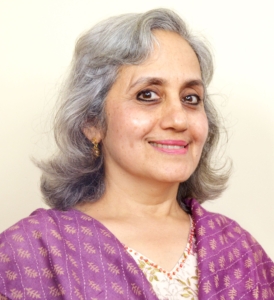
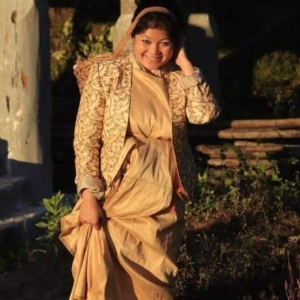
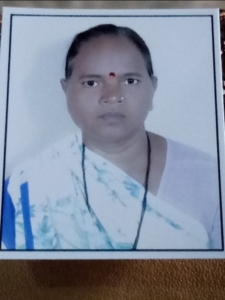
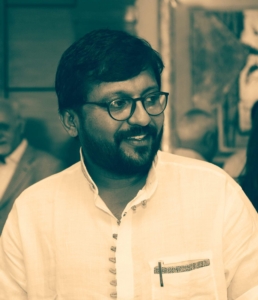
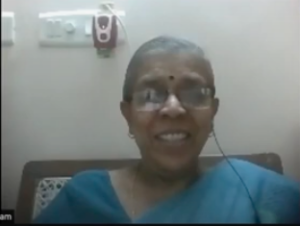
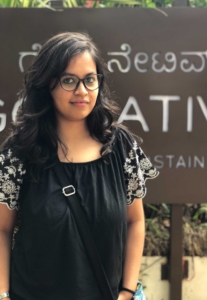
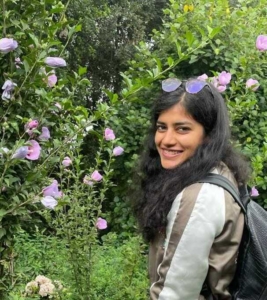
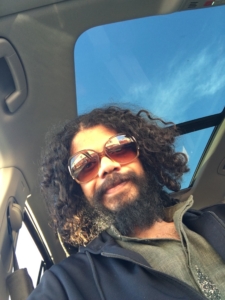
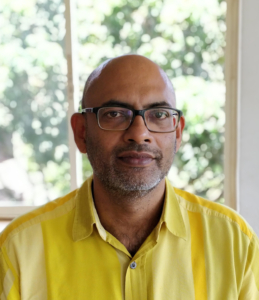
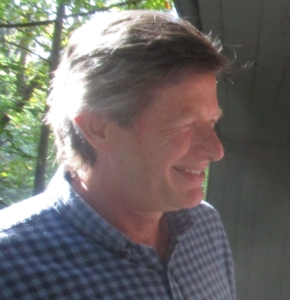
![01. EJ-CJ Logo (original) 256x256 [Research Page] copy](https://ejcj.orfaleacenter.ucsb.edu/wp-content/uploads/2017/12/01.-EJ-CJ-Logo-original-256x256-Research-Page-copy.jpg)
